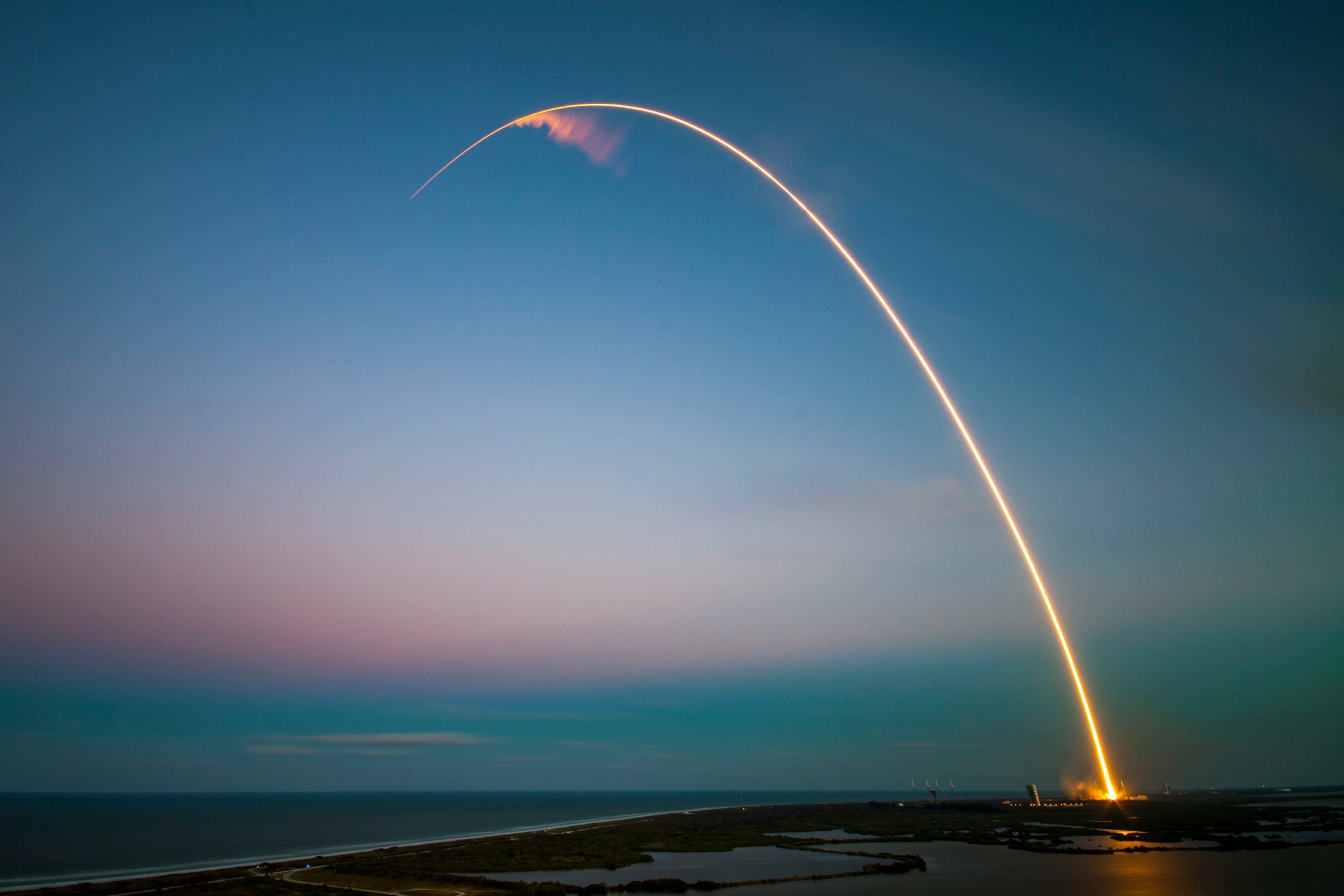

Written By Dr. Adam Baker
In the heart of South Kensington, where museums meet imagination, space took centre stage. Not behind classified doors or inside sterile labs, but out in the open, among curious children, science enthusiasts, and wide-eyed passers-by. At the Great Exhibition Road Festival, amid a hum of discovery and conversation, one event drew a full house: a panel on “Rocket Science and the New Space Race.” The theatre filled fast, standing room only, as the public gathered not just to listen, but to be part of the conversation.
Among the panelists was Dr. Adam Baker, Special Project Director and propulsion expert at Magdrive. For Adam, this opportunity was a reminder of why space matters, not just to engineers and policymakers, but to everyone with a stake in the future.
The UK Space Sector: Modest, Smart, Underrated
“The UK spends around a billion pounds a year on space,” Adam explained later. “That’s a lot of money. But you’d never know it.”
To him, the real story of the UK’s space sector is one of quiet competence. It’s not about headline-grabbing budgets or moonshots… yet. It’s about investing intelligently, partnering effectively, and delivering high-impact results through organisations like the European Space Agency.
And still, we undersell it. “We don’t shout loudly enough about how much value we get from space,” Adam noted. “From weather forecasting and navigation to climate monitoring and telecoms, space is already stitched into the fabric of daily life.”
What we lack isn’t capability, it’s confidence.
From Cold War to Climate Watch: Rewriting the Rules of Space
When people talk about a “new space race,” they often imagine a reboot of the Cold War: flags, rival superpowers, boots on the Moon. But this race, Adam argues, is different.
“It’s no longer about who gets there first. It’s about who gets there sustainably.”
In this 21st-century contest, success is measured not by conquest but by contribution. Can we use space to fight climate change? Can we extend humanity’s reach without littering low Earth orbit? Can we unlock commercial value while protecting a shared environment?
And in this new paradigm, the UK has a real chance to lead, not through scale, but through specialisation.
Propulsion, ISAM, and the Power of Niche Dominance
If the Cold War space race was a sprint, today’s is a systems challenge, and the UK would have a surprising advantage. “We’re especially strong in propulsion,” Adam said. “And we’ve got a shot at becoming world-class in In-Orbit Servicing, Assembly, and Manufacturing (ISAM).”
ISAM may not be a household name yet, but it’s one of the most promising frontiers in space innovation. Imagine spacecraft that can repair, refuel, or even build other spacecraft while in orbit. It’s a future that demands smart satellites, agile propulsion, robotics, and autonomous navigation, all areas where UK research is pushing boundaries.
The question, again, is whether we’ll back that innovation with bold commercial ambition.


Talent: Who Gets to Build the Future?
Of course, no space strategy matters without people driving it. And here, Adam is candid.
“Space is still dominated by people like me, middle-aged white men. That must change.”
He speaks not just as an engineer, but as a father to two mixed-race teenage daughters. If we want a thriving, resilient UK space sector, it has to reflect the diversity of the country. That means starting young, primary school level, and showing girls and underrepresented communities that STEM isn’t just accessible, but exciting.
“It’s not enough to create jobs. We must create aspirations,” Adam said. “And we need new role models to do that.”
The Public Is the Payload
Adam’s biggest takeaway from the festival? The public cares. “We’re not just shouting into the void. People are genuinely interested. And that interest matters.”
Why? Because space is political. Always has been. “The most brilliant piece of technology won’t leave the ground without political backing,” he said. “And political will is shaped by public perception.”
NASA understood this in the 1960s. The UK must understand it now.
“If we can’t capture the imagination of the public, if we can’t show that space is exciting, urgent, and essential, then we shouldn’t be in the business.”
The Billion-Pound Bet We SHOULD Make
Asked what single decision could supercharge the UK’s role in space, Adam doesn’t hesitate: solar power from space.
“We should place a serious, billion-pound bet on demonstrating energy beamed from orbit to Earth,” he says. “It’s bold. But it’s not fantasy.”
The technical risks are known. The commercial model is taking shape. What’s missing is the political courage to commit. “We need to decide: are we serious about the future of energy? Or are we just tinkering at the edges?”
2030: What Success Looks Like
By the end of this decade, success won’t be measured in launches alone. It’ll be seen in a space sector that’s more inclusive, more confident, and more capable of turning ideas into impact.
It’ll be a country that doesn’t just talk about space but actually builds in it.
The new space race isn’t just for scientists. It’s for all of us.

